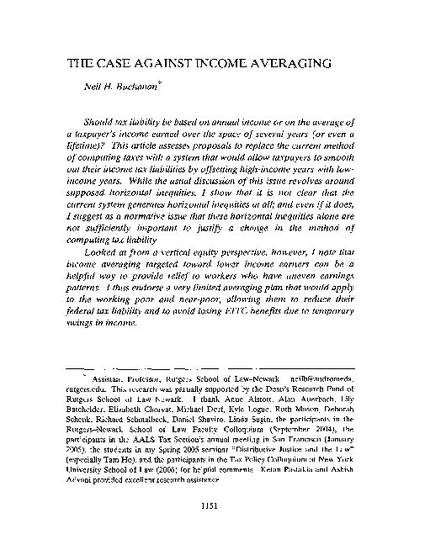
Should tax liability be based on annual income or on the average of a taxpayer's income earned over the space of several years (or even a lifetime)? This article assesses proposals to replace the current method of computing taxes with a system that would allow taxpayers to smooth out their income tax liabilities by offsetting high-income years with low-income years. While the usual discussion of this issue revolves around supposed horizontal inequities, I show that it is not clear that the current system generates horizontal inequities at all; and even if it does, I suggest as a normative issue that these horizontal inequities alone are not sufficiently important to justify a change in the method of computing tax liability. Looked at from a vertical equity perspective, however, I note that income averaging targeted toward lower income earners can be a helpful way to provide relief to workers who have uneven earnings patterns. I thus endorse a very limited averaging plan that would apply to the working poor and near-poor, allowing them to reduce their federal tax liability and to avoid losing EITC benefits due to temporary swings in income.
